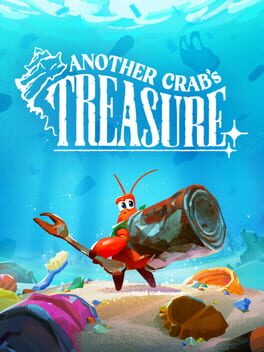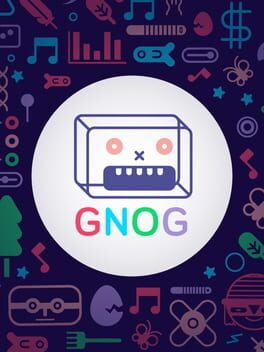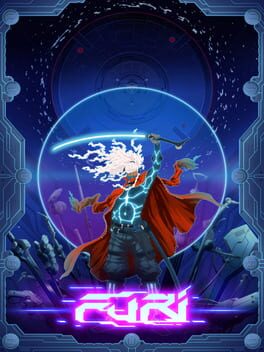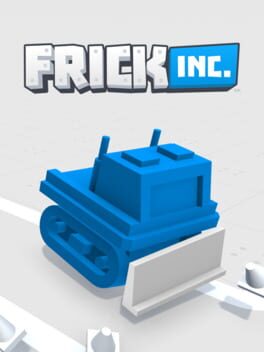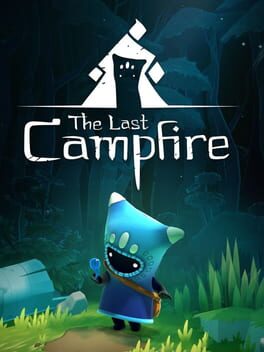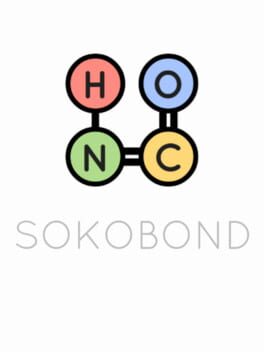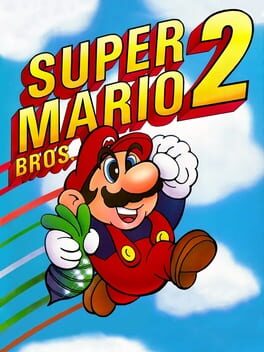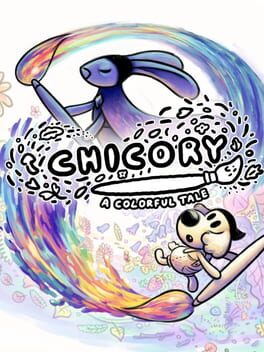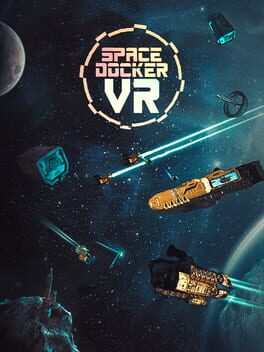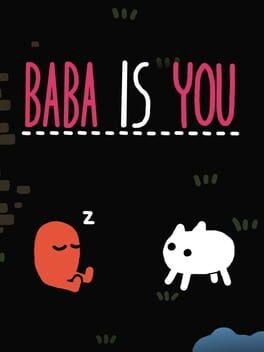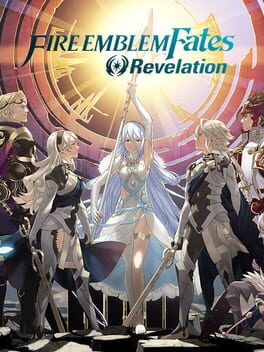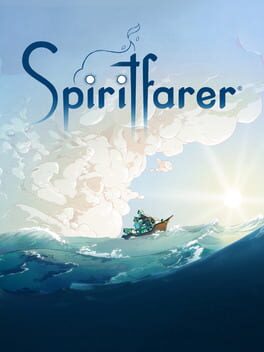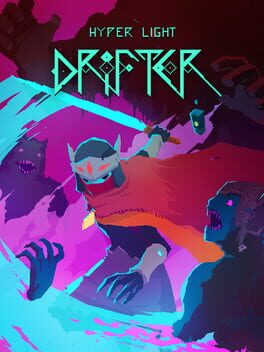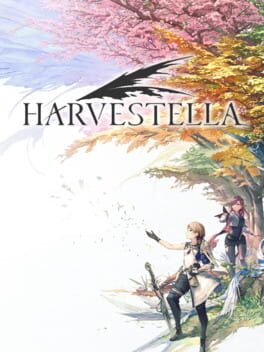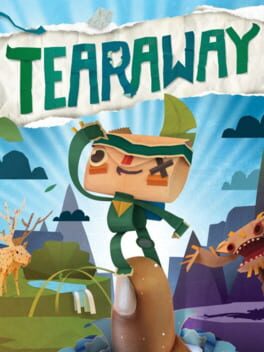notesurfer
BACKER
Another Crab's Treasure is a Soulslike with an approachable charm but not a lot of depth. The idea of a defense-oriented Souls game is interesting and synergizes well with the setting. That setting is a real highlight, with colorful underwater environments and a strong environmental message. While the writing is a generally amusing, the game is way too verbose, especially during major story beats.
Unfortunately the great ideas are slowly buried under a mountain of tedium. Enemy variety is very low, and levels frequently feel too long. Items are strewn across large open spaces, but generally just offer more currency, which is a real disappointment. The game's underlying systems feel half-baked, which makes progression uneven and unsatisfying.
On top of this, bugs like disappearing bloodstains and bad collision caused more loss of progress than any errors on my part. The game doesn't save your location when you exit the game, which means you have to reach a bonfire or else lose all your level progress. I made it to the final level before the tedium got to me. There's a lot of great ideas here, but to me this ended up feeling like an early access or beta. Hopefully the developer will learn some lessons and we'll get an amazing sequel that executes better on these ideas.
Unfortunately the great ideas are slowly buried under a mountain of tedium. Enemy variety is very low, and levels frequently feel too long. Items are strewn across large open spaces, but generally just offer more currency, which is a real disappointment. The game's underlying systems feel half-baked, which makes progression uneven and unsatisfying.
On top of this, bugs like disappearing bloodstains and bad collision caused more loss of progress than any errors on my part. The game doesn't save your location when you exit the game, which means you have to reach a bonfire or else lose all your level progress. I made it to the final level before the tedium got to me. There's a lot of great ideas here, but to me this ended up feeling like an early access or beta. Hopefully the developer will learn some lessons and we'll get an amazing sequel that executes better on these ideas.
2017
2016
Furi is a bullet hell twitch-reflex boss rush dipped in neon. The story is pretty vague, but there's a lot of vibes and hinting at a big twist down the road. Your moveset is large enough to offer a lot of variety without being overwhelming. Dodging, shooting, parrying, and charging all feel easy to learn but have a high skill ceiling. Unfortunately, the bosses are designed to wear on your patience more than your reflexes.
Each boss has multiple phases, with movesets that slowly evolve to become more intense and complicated as you progress. Each player death sets you back to the beginning of the current phase, and a third death forces a complete restart of the boss. This works out really well until the phases start splitting into sub-phases, each with a different necessary approach. Some of these sub-phases become tedious busy-work as the player has already cracked the code and is simply going through the motions to get to the next part.
The advantage of a boss rush game is that you can cut out the chaff of no-brainer mobs, perfunctory levels, and tedious run-ups. If you then replace that with thoughtless, perfunctory boss phases then you've just reframed the tedium. This may very well appeal to some players, but I prefer my difficult games to offer a 'practice makes perfect' approach. Furi kept making me retake tests I'd already passed.
Each boss has multiple phases, with movesets that slowly evolve to become more intense and complicated as you progress. Each player death sets you back to the beginning of the current phase, and a third death forces a complete restart of the boss. This works out really well until the phases start splitting into sub-phases, each with a different necessary approach. Some of these sub-phases become tedious busy-work as the player has already cracked the code and is simply going through the motions to get to the next part.
The advantage of a boss rush game is that you can cut out the chaff of no-brainer mobs, perfunctory levels, and tedious run-ups. If you then replace that with thoughtless, perfunctory boss phases then you've just reframed the tedium. This may very well appeal to some players, but I prefer my difficult games to offer a 'practice makes perfect' approach. Furi kept making me retake tests I'd already passed.
2020
2020
The Last Campfire is a presentation-forward puzzle/exploration game. The game is certainly gorgeous, but I had some stuttering, collision and visual glitches throughout. Rewards for exploration are often lore notes, which is a bit frustrating if you're not interested in those. Puzzles themselves tend to be higher-order Zelda puzzles: block pushing, mirror turning, item arranging, etc. Again, the presentation is beautiful but the substance is pretty straightforward. Overall this is a perfectly adequate game for people who really like Zelda puzzles but aren't looking for a grand sweeping adventure.
2014
1988
This is a dreadful little platformer. Floaty, inertial physics combined with difficult to anticipate enemies and relatively small screens makes for a game that borders on "gotcha" gameplay. The unique ideas in this game are largely tedious or inconsequential, and the levels feel like uninspired padding. Having four distinct characters to choose from is cool, and some of the visual designs are nice, but otherwise this is a pretty sad entry in Mario history.
Chicory is a unique feel-good puzzle platformer about bringing color to a black-and-white world. Playing this game with a controller is a significant handicap, but the overall difficulty is so low it didn't matter. Coloring in the world is immensely satisfying, and almost all of the finicky drawing sections are optional. I do not have the gene for visual art, but the game makes coloring very accessible while still allowing for higher-order art if that's something you enjoy.
Unlocking new abilities and exploring the world was great fun, and most of the puzzles were engaging. Boss fights are really creative and visually stunning, although a couple of them are so gruesome and nightmarish that I can't imagine a child playing them. It's a real shame, because otherwise this is very much a sophisticated game for modern children, with a lot of room for player expression and optional secrets.
The game is well-written, but I would have liked a few more "quirky" characters (Pickle is the MVP). The message of the game is beautiful and heartwarming, but it misses the mark a bit by over-indulging in dialogue. For a game that is so diagetically unique and compelling, you really don't need to underline every theme over and over again. If a picture is worth a thousand words, you don't also need a thousand words to explain it.
Unlocking new abilities and exploring the world was great fun, and most of the puzzles were engaging. Boss fights are really creative and visually stunning, although a couple of them are so gruesome and nightmarish that I can't imagine a child playing them. It's a real shame, because otherwise this is very much a sophisticated game for modern children, with a lot of room for player expression and optional secrets.
The game is well-written, but I would have liked a few more "quirky" characters (Pickle is the MVP). The message of the game is beautiful and heartwarming, but it misses the mark a bit by over-indulging in dialogue. For a game that is so diagetically unique and compelling, you really don't need to underline every theme over and over again. If a picture is worth a thousand words, you don't also need a thousand words to explain it.
2021
Space Docker is a great execution of gameified space maneuvering. There are lots of comfort settings and degrees of inertia compensation to increase or decrease challenge. Missions are as varied as you can really expect given the conceit of the game. Getting skilled at flying the spacecraft is satisfying, but unfortunately the controls are kind of a let-down. There are some physical control options, but you'll still have to rely on virtual controls for some aspects. This made me feel like a lot of my mistakes weren't my fault, as I failed to move my hands to the exact coordinates for a given joystick or button. If you have a higher tolerance for virtual controls and like the idea of true spaceflight simulation, then this game is definitely worth your time.
2019
Baba is You is a creative and adorable little programming puzzle game. Block pushing puzzles quickly evolve into mind-bending, level destroying programming challenges. While it is initially fun to reconfigure obstacles to your liking, the game quickly becomes overly restrictive with its ruleset. This attempt to maintain difficulty stifles player expression and makes solutions a lot more deterministic. If every level had a consistent framework the difficulty could be offset with familiarity, but the only consistency is that there is no consistency - every level requires internalizing a new set of rules. Certainly great fun for a certain type of mind, but it feels like homework to me.
Based on my experience with the other Fates games, I knew going into Revelation that the story would be terrible, the writing simplistic, and the fan service cringey. I had hoped to overlook those things in order to enjoy some straightforward Fire Emblem combat at least. I did enjoy theory-crafting child units using cross-game pairings, but the game gave me little satisfaction otherwise.
Levels and difficulty are really uneven, especially considering the early unlockability of certain royal units. High tier weapons are so "balanced" that getting a unit's weapon mastery up feels pretty unrewarding. By far the worst flaw however is the map design. Most of the repeated maps are invoked in uninteresting ways. The new maps and map gimmicks are designed to maximize tedious, cautious play. Enemy placements and quantities often feel thoughtless and amateurish. Overall this third title feels more like a fan-made ROMhack than an official Fire Emblem title.
Levels and difficulty are really uneven, especially considering the early unlockability of certain royal units. High tier weapons are so "balanced" that getting a unit's weapon mastery up feels pretty unrewarding. By far the worst flaw however is the map design. Most of the repeated maps are invoked in uninteresting ways. The new maps and map gimmicks are designed to maximize tedious, cautious play. Enemy placements and quantities often feel thoughtless and amateurish. Overall this third title feels more like a fan-made ROMhack than an official Fire Emblem title.
2020
Spiritfarer is a cozy resource management/base building game. The animations are gorgeous and the music is calming, if a bit banal. The game centers primarily around the characters, all of whom are well-written but forgettably inoffensive. Maintaining good relationships and progressing the character arcs requires numerous resources, which are gathered and processed by completing mediocre minigames. Traveling while balancing these tasks is initially a fun juggling act, but it's easy to get stuck with grinding for a particular resource or traveling to a distant location without being able to progress other goals. Depending on the level of complexity or difficulty a player is looking for this could be worthwhile, but I found myself hitting too many tedious road bumps.
2016
Hyper Light Drifter is a precision combat, vibe-heavy exploration adventure. The visuals are gorgeous, featuring detailed pixel art splash screens and an evocative, utterly unique setting. A lot of gameplay elements are also communicated through visual design, with mixed success. It's bizarre that so much important information is cryptically inferred without words, but the phrase "your gun is now fully charged" flash on the screen occasionally.
Combat is fast but methodical. Without i-frames or the chain dash, dodging feels stiff and frustrating. The bosses are actually more fun than trash mobs, because the combat requires you to read individual enemy attacks and that's a lot easier to do when the enemy takes up most of the screen. Difficulty is pretty uneven, with sequential challenges rocketing up and plummeting down rapidly.
Checkpoints are often too far apart considering that the entire room state goes back to square one when you die. The game wants you to explore and push at the edges of the map, but you take damage if you try to dodge into an inaccessible area. These issues all add up to a game which feels smugly disrespectful of my time. It is beautiful and the levels are thoughtfully designed - I might still try the sequel, because this feels like a prototype with a lot of potential.
Combat is fast but methodical. Without i-frames or the chain dash, dodging feels stiff and frustrating. The bosses are actually more fun than trash mobs, because the combat requires you to read individual enemy attacks and that's a lot easier to do when the enemy takes up most of the screen. Difficulty is pretty uneven, with sequential challenges rocketing up and plummeting down rapidly.
Checkpoints are often too far apart considering that the entire room state goes back to square one when you die. The game wants you to explore and push at the edges of the map, but you take damage if you try to dodge into an inaccessible area. These issues all add up to a game which feels smugly disrespectful of my time. It is beautiful and the levels are thoughtfully designed - I might still try the sequel, because this feels like a prototype with a lot of potential.
2022
This game is a cumbersome mess. The opening is excruciating, with tons of slow, repetitive animations. The world is rife with invisible walls and dumb plot obstacles. Dialogue often gives the player multiple options that make no difference. Running consumes stamina even when not in combat (imagine always walking everywhere in Harvest Moon). Combat offers no defensive movement options, making every encounter a DPS grind. The story and setting are interesting, but the visuals are awful and frequently stutter. Basically this game is a collection of many of my gaming bugbears, with very little to redeem it.
2013
Unique and charming, with a vibe that evokes Banjo-Kazooie and its many imitators. Tearaway does a great job of showcasing the PS Vita's unique feature set, but there is very little depth to the gameplay itself. I also found many of the touch controls to be frustrating, especially drawing coherent shapes in the paper-cutting minigame. Shoving my finger "through" the screen was a really cool feeling, but I definitely did not enjoy seeing my bored face superimposed in the sky.
